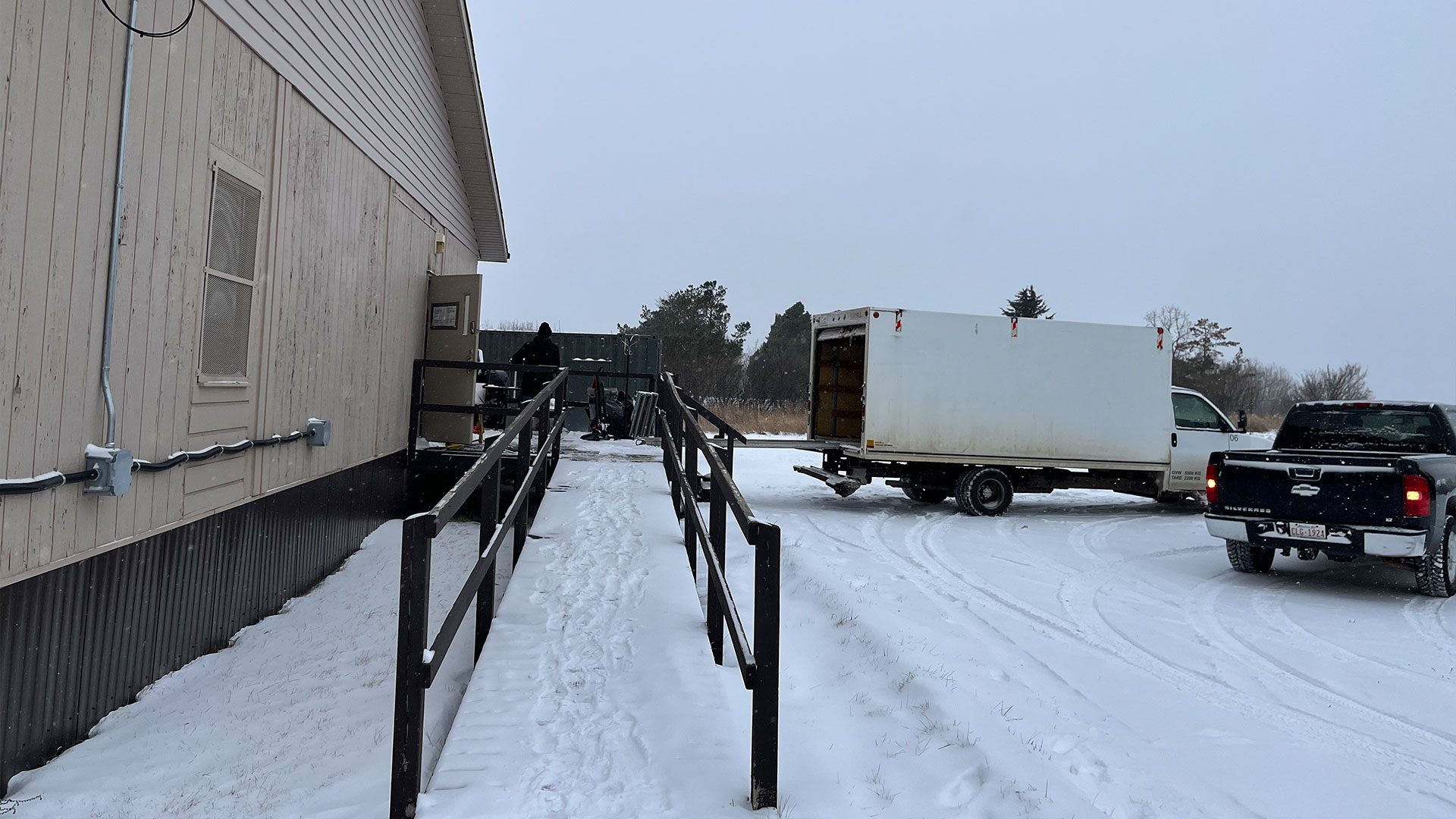A small group of women and a handful of movers go up and down a snowy ramp while the wind blows around them. They are emptying out the trailers that once held the Nechi Institute,
Today is their last day to move their belongings from three dilapidated trailers in St. Albert, located about 15 km northwest of Edmonton.
After several weeks of work, they are almost finished.
“It is the second time that Nechi has been thrown out into a snowbank,” said CEO Marilyn Buffalo. Nechi Institute works to train addiction counsellors and therapists through a comprehensive multi-week program.
Two organizations, Poundmaker and the Nechi Institute began operating the residential addictions treatment centre there in the ‘80s.
At that time, the provincial government used the land from a residential school and constructed a building just west of the old school building site.
The Nechi Institute, which had accommodations for up to 28 students to stay on-site for in-person training courses, also worked out of the same building. But they were evicted in March 2020 and told to find a new home.
The move was part of the United Conservative Party’s plan to expand the number of residential addiction treatment beds in Alberta.
Nechi has been able to find space to continue their work, but Buffalo said they liked the space they were in and it had a sweat lodge already set up.
They are paying for the new space through the money they receive for their training delivery.

We used to have support
Her daughter, Rhonda Buffalo, stops packing briefly to show APTN News a framed letter wrapped for the move.
“It is a letter from [former] prime minister Brian Mulroney praising the Nechi Institute. We used to have support,” said Rhonda.
Rhonda said she had an emotional breakdown the other day while thinking about everything that Nechi has been through.
Buffalo said they have trained 80 new support workers during the pandemic.
“While everyone was shut down we will still working. Because this work needs to be done.” said Buffalo.
Addictions counsellors trained across the country
In total, Nechi reports that they have trained over 15,000 support workers from all over the country in providing support for people experiencing addiction to drugs and alcohol.
They moved operations into modular offices which have been on site since 1999. When the move happened Buffalo raised alarm bells to APTN about stories elders had told her about unmarked graved on the site.
“I feel like a battered wife running in the night with her children,” said Buffalo. “And the children are our students and our staff.”
“All we are doing as Indigenous people is trying to help our own people. My question is why we are being attacked for this,” said Buffalo.
In December of 2019, facing criticism for the eviction of the Nechi Institute in a session at the legislature, former Alberta premier Jason Kenney said,
“We will that they would find other space for the Nechi institute.
“They [Poundmaker’s Lodge] need to use the space to treat patients. We’ll find other space for the Nechi Institute, but this is about additional beds to treat additional patients,” said Kenney.
Government has not committed to a meeting
But no one from the government would commit to meeting with Buffalo about a new location.
“No one has reached out to us for any meetings,” said Buffalo.
Richard Feehan, MLA for Edmonton-Rutherford and the former minister of Indigenous relations with the NDP, invited Marilyn Buffalo in April of 2022 to the Alberta legislature.
According to the Hansard (the record of all provincial government meetings) he called the Nechi Institute, “one of the finest Indigenous training, research and health promotion centres in the world.”
The Alberta government said it has made multiple offers for other accommodations.
When APTN reached out to the minister of Indigenous Relations, Rick Wilson, for comment, a response instead came from the department of infrastructure.
“Alberta’s government has made several offers to assist the Nechi Institute with relocation, each of which has been rejected. Alberta Infrastructure has offered and is willing to relocate Nechi’s structures or provide them with replacement trailers, both options at no cost,” said the press secretary for the department.
APTN obtained two letters written from Alberta Infrastructure. They do mention that they will move the trailers and cover expenses. Neither letter references finding a replacement or new trailers for Nechi.
The November 2019 letter states that, Infrastructure assessed the potential for replacement space but nothing currently exists.”

Addiction is a country-wide problem
Buffalo said she is putting the blame on Canada.
“I think Canada in general needs to have a serious look at what services are available,” said Buffalo. “We are having an addictions crisis across the country, and this is what they do?” said Buffalo.
According to the Canadian government, the total 24,626 people who have died due to opioid toxicity in Canada between January 2016 and June 2021, roughly 40 per cent have occurred during the pandemic.
“Where is Truth and Reconciliation. It has become all about ceremonial photo ops … we need to focus on practical solutions,” said Buffalo.
Buffalo said that while treatment is very important, the government also needs to fund aftercare programs to help people struggling with addiction.










